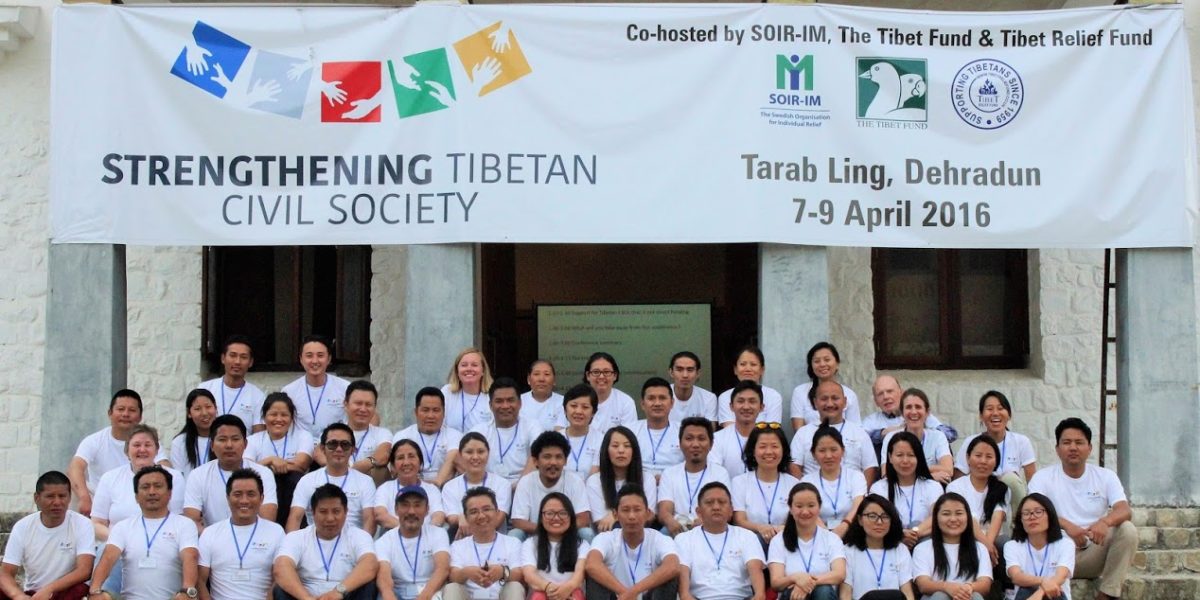Educational & Professional Scholarship Programs:
Providing high quality education to the Tibetan children has been one of the topmost priorities of His Holiness the Dalai Lama and the Tibetan administration in exile. After arriving in India in 1959, the Indian government under Pandit Jawaharlal Nehru helped establish separate schools for Tibetan children where emphasis has been laid towards preserving Tibetan language and culture. The Central Tibetan Administration (CTA) in India currently oversees 73 Tibetan schools that are providing education to approximately 24,000 students. With the consistent support of the US government and in collaboration primarily with the CTA’s Department of Education, The Tibet Fund has worked consistently to improve the existing education system in exile by increasing education opportunities for Tibetan children, improving the quality of education at Tibetan schools, and addressing any deficiencies in core educational resources.
Educating New Tibetan Refugees:
Around 40 percent of refugees are children and youth who flee from Tibet in search of better education and more freedom. Most arrive with very limited academic skills or formal training due to lack of adequate educational opportunities in Tibet. From the educational component of the US government Humanitarian Assistance Grant, we have been able to help fund exclusive schools for the newly-arrived refugees and extend support towards basic education, vocational training, food, clothing, shelter and medical care. Within the last two decades, 3,271 monks and nuns who arrived from Tibet received financial support to pursue traditional education at 56 monasteries and nunneries in India. As of 2017, 1,934 newly arrived Tibetans received free education at three residential schools, and 2,562 high school and college students received career guidance and counseling.
Tibetan Scholarship Program:
Considered as one of the most successful higher education initiatives undertaken by The Tibet Fund, the US Bureau of Educational and Cultural Affairs established the Tibetan Scholarship Program (TSP) in 1998. The fundamental goal of the TSP is to provide scholarships to Tibetans in exile to pursue higher education in the US. The program has generated valuable Tibetan human capital as many alumni now assume key leadership positions in various fields and bring newer skills and innovative approaches to aid in the functioning and development of the Tibetan community.
The Tibet Fund has effectively implemented the TSP in partnership with the CTA’s Department of Education, enabling a total of 444 Tibetan students to receive higher education at some of America’s most prestigious educational institutions. The scholarship coordinator of The Tibet Fund facilitates the admission process for TSP scholars, participates in the selection process, and successfully negotiates tuition discounts for the TSP students. In 2017, 26 scholarship recipients pursued master’s degrees in subjects including journalism, law, chemical engineering, sociology, computer science and documentary films at universities including Columbia, Harvard, the University of Texas at Austin, NYU and Rutgers.
Professional Scholarship Program:
The Tibet Fund launched Sikyong Professional Scholarship Program (SPSP) in 2009 to produce a growing class of modern Tibetan professionals who can advance self-sufficiency and professional capability in the Tibetan community. Administered in partnership with the CTA’s Department of Education, we have supported 120 outstanding Tibetan students who are pursuing a variety of professional degrees at the most selective professional schools and institutes in India.
We launched a similar professional scholarship program for Tibetans in Nepal beginning 2017, which is being implemented in partnership with the Nepal-based Himalayan Society for Youth and Women Empowerment. In 2018, 27 students in India are pursuing professional degrees in both undergraduate and graduate studies, including medicine, engineering, and doctoral studies focusing on economics, neurosciences, psychology, nursing, education, biotechnology, computer science and human resources.
Six students in Nepal are pursuing different professional courses, including business administration, law, sociology, and hotel and tourism management.
Read details at: http://tibetfund.org







